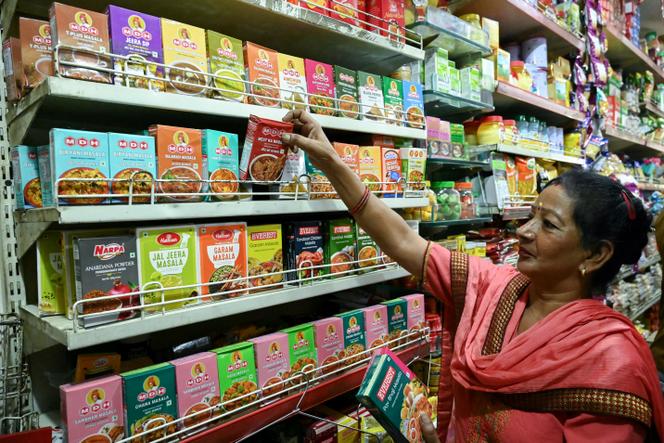


From Hong Kong to the US and the European Union (EU), health authorities have Indian spices in their crosshairs. Back in April, Hong Kong's Center for Food Safety reported the presence of a carcinogenic agent, ethylene oxide, in four spice blends from India. Three products from the brand Mahashian Di Hatti (MDH) and one from the brand Everest were immediately recalled.
In India, their small rectangular packets are iconic. They fill grocery aisles and kitchen shelves, where they are used daily and in large quantities. Everest holds 16% of the domestic market share, making it the country's leading brand, followed by MDH, with 10%. Both manufacturers are also players in the export market.
The subcontinent, often described as the "land of spices," is the world's largest producer, consumer and exporter. India sells over 200 varieties of spices worldwide, to the tune of some $4 billion (€3.7 billion) a year. The domestic market alone accounts for $10 billion.
But Hong Kong's decision has cast doubt on the quality of Indian seasonings. One after another, health authorities in various countries have sounded the alarm. Singapore recalled the same Everest brand fish curry blend on April 18. Again, the product contained ethylene oxide. New Zealand, Australia, the US and Bangladesh have announced that they are investigating the problems associated with these two brands. And British authorities have decided to increase testing on all spice imports from India.
On India's side, measures have been taken by the Spices Board of India, an agency affiliated with the Ministry of Commerce. In an advisory circular dated May 7, this organization responsible for regulating spice exports asked makers to stop using ethylene oxide as a fumigation agent and to opt for other sterilization methods. This colorless gas can be used to preserve foods, mainly by protecting against parasites. Spice exporters are now encouraged to test raw materials, packaging materials and the final product.
The Food Safety and Standards Authority of India (FSSAI) has asked all states in the country to conduct tests on spices from various brands. The online news site Scroll filed a request under the Right to Information Act with the FFSAI for the results of these tests. While it did not provide data at a national level, the authority declared that "thirteen spice samples collected in nine states" were "unsafe for human consumption." These results are only partial, as 104 of the 251 samples collected have not yet been tested.
You have 56.56% of this article left to read. The rest is for subscribers only.
